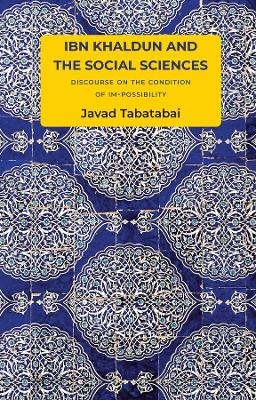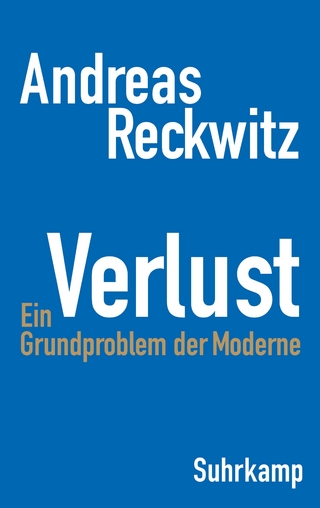
Ibn Khaldun and the Social Sciences
Discourse on the Condition of Im-possibility
Seiten
2024
Polity Press (Verlag)
978-1-5095-5136-1 (ISBN)
Polity Press (Verlag)
978-1-5095-5136-1 (ISBN)
Arabic and European studies of Ibn Khaldun, the great medieval polymath, follow one of two paths. In one direction, scholars interpret his Muqaddimah (‘Prolegomenon’), written in 1377, as the point at which the new social sciences emerged. They identify Ibn Khaldun’s ‘new science of culture’ as sociology or as an ‘Islamic’ alternative to sociology. In the other direction, the interpretation of Khaldunian discourse is confined to the Islamic–Aristotelian paradigm of its time. The epistemological novelty of the Muqaddimah is dismissed and the science of culture is perceived as a minor contribution to the Aristotelian curriculum.
Charting a different path, Javad Tabatabai’s highly original book is an enquiry into the condition of the im-possibility of the social sciences in the Islamic–Aristotelian paradigm. It theorizes the condition of im-possibility of the ‘scientific revolution’ as the ‘epistemic obstacle’ to modernity in Islamic civilization. This theorization revisits Michel Foucault’s discussion of the condition of possibility of the human sciences in light of the history of Christian–Aristotelian thought and the broader French debates about epistemology from Bachelard to Althusser.
Javad Tabatabai offers a critical theory of tradition and modernity in the Middle East, elaborating on a historical situation where social and human sciences emerged by way of colonial and post-colonial translations of discourse from Europe, and in a historical and epistemological break with inherited traditions of knowledge. In this situation, Tabatabai highlights the significance of reactivating Ibn Khaldun’s critical reckoning with the limit of inherited traditions as the political-theological horizon of renewal.
Charting a different path, Javad Tabatabai’s highly original book is an enquiry into the condition of the im-possibility of the social sciences in the Islamic–Aristotelian paradigm. It theorizes the condition of im-possibility of the ‘scientific revolution’ as the ‘epistemic obstacle’ to modernity in Islamic civilization. This theorization revisits Michel Foucault’s discussion of the condition of possibility of the human sciences in light of the history of Christian–Aristotelian thought and the broader French debates about epistemology from Bachelard to Althusser.
Javad Tabatabai offers a critical theory of tradition and modernity in the Middle East, elaborating on a historical situation where social and human sciences emerged by way of colonial and post-colonial translations of discourse from Europe, and in a historical and epistemological break with inherited traditions of knowledge. In this situation, Tabatabai highlights the significance of reactivating Ibn Khaldun’s critical reckoning with the limit of inherited traditions as the political-theological horizon of renewal.
Javad Tabatabai was formerly Professor and Vice Dean of the Faculty of Law and Political Science at the University of Tehran.
Introduction – Milad Odabaei
Preface to the Second Edition
Chapter One: Discourse on the Conditions of Im-possibility
Chapter Two: Ibn Khaldun and Tradition
Chapter Three: The Theological Bases of Ibn Khaldun’s Social Thought
Chapter Four: On the ‘Sociology’ of the Philosophers of the Islamic Period
Chapter Five: Ibn Khaldun’s Social Theory
Chapter Six: The Theoretical Basis of the Social Sciences
Chapter Seven: The Theory of Justice in Ibn Khaldun’s Thought
Chapter Eight: Ibn Khaldun’s Theory of Luxury
Chapter Nine: On Ibn Khaldun’s ‘Economic’ Theory
Bibliography
Notes
Index
| Erscheinungsdatum | 29.12.2023 |
|---|---|
| Reihe/Serie | Critical South |
| Übersetzer | Philip Grant |
| Vorwort | Milad Odabaei |
| Verlagsort | Oxford |
| Sprache | englisch |
| Maße | 152 x 229 mm |
| Gewicht | 522 g |
| Themenwelt | Sozialwissenschaften ► Soziologie |
| ISBN-10 | 1-5095-5136-0 / 1509551360 |
| ISBN-13 | 978-1-5095-5136-1 / 9781509551361 |
| Zustand | Neuware |
| Informationen gemäß Produktsicherheitsverordnung (GPSR) | |
| Haben Sie eine Frage zum Produkt? |
Mehr entdecken
aus dem Bereich
aus dem Bereich
Ein Grundproblem der Moderne | Die erste umfassende Studie zum …
Buch | Hardcover (2024)
Suhrkamp (Verlag)
32,00 €
1920/30 und die Gegenwart
Buch | Softcover (2024)
Springer Fachmedien (Verlag)
34,99 €


